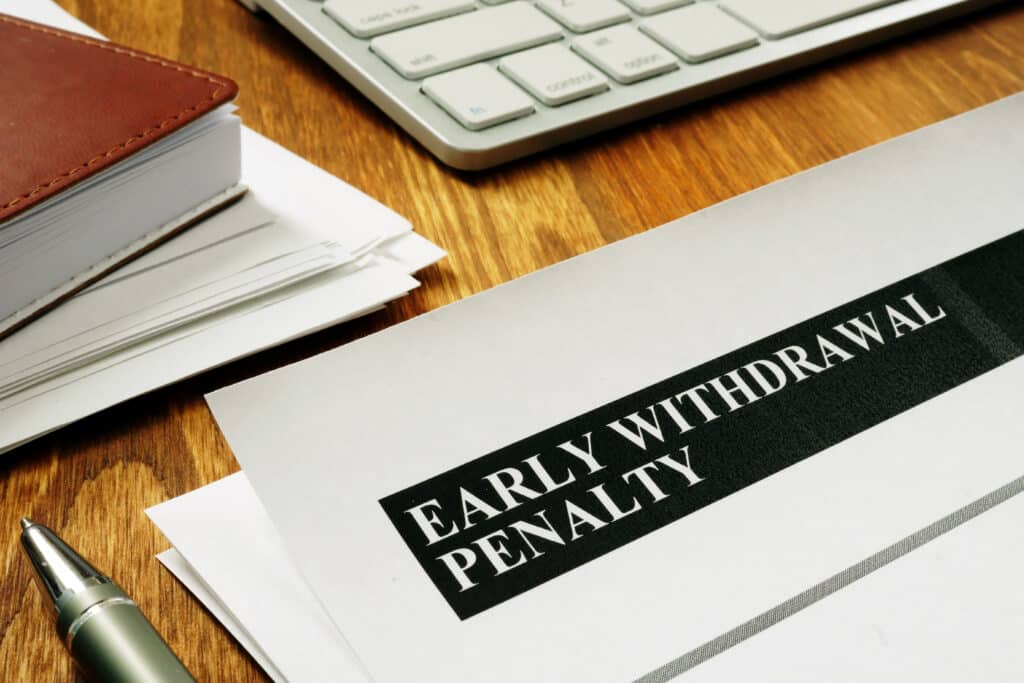Friday, February 2, 2024

Here’s one of the most frequently asked questions I receive about 401(K) withdrawal.
”I recently lost my job, and unfortunately, I don’t have an emergency fund or other financial resources to cover my daily expenses. Can I take money out of my 401(k) without facing early withdrawal penalties?”
The question is important because making the wrong decision regarding your retirement savings can have long-term financial consequences. Withdrawing funds from your 401(k) prematurely can result in penalties, taxes, and a significant reduction in your retirement nest egg.
In today’s economic condition, where the inflation rate sits at 3.4 percent, many employers have decided to cut down on their payroll expenses. This lead to an increase in the unemployment rate in the U.S. Recent stats show about 5.91 million Americans are jobless, with over 1.6 million people reportedly losing their jobs in 2023.
If you have suffered a job loss with no savings in your pocket or an insufficient amount of backpay to cover your necessary expenses, chances are you might be considering tapping into your retirement savings to cover immediate financial needs, and you’re not alone. Many people believe that cashing out their 401(k) is a viable solution to their financial woes. However, doing so without proper understanding and planning can cause unnecessary hassles with the IRS down the line.
Here’s why.
Potential Risks of 401(K) Early Withdrawal
A 401(k) plan lets you save part of your paycheck for long-term investments before taxes. The contributions grow tax-deferred until withdrawal, typically during the retirement age of 59 ½.
Generally, anyone can cash out their 401(K) savings prematurely. While it may seem tempting to do so when you’re unemployed, it’s typically not advisable due to the penalties and tax implications involved. So, if you’re weighing the decision to go down this route, here are five considerations to keep in mind.
1. The IRS imposes a 10 percent penalty for early withdrawal.
If you withdraw money from your 401(k) before retirement age, a 10 percent fee applies to the amount withdrawn. However, the IRS offers exceptions, such as in the case of a hardship withdrawal. If you need to access funds from your retirement plan for immediate and significant financial needs, like education, medical, or funeral expenses, you may be exempt from the 10 percent penalty rule. Unfortunately, being unemployed doesn’t meet the criteria for this exemption.
2. You need to pay income taxes to the withdrawn amount.
Cashing out your 401(k) early results in taxes, as the IRS treats the withdrawn amount as ordinary income. This means you’ll owe federal and state income taxes on the withdrawn funds, which further reduces the amount available for your immediate use. For example, if you withdraw $10,000 and your tax rate is 20 percent, you will owe $2,000 in taxes.
3. Early withdrawal reduces potential investment growth.
Retirement accounts like 401(k) are designed for long-term investment returns. Your contributions to the account will be invested in stocks or bonds which allows it to earn interest and grow over time. Premature withdrawals not only incur penalties but also hinder potential growth through compounding interest.
4. You will receive less retirement income.
When you withdraw your funds from your account, you’re reducing the amount saved for retirement. This can ultimately result in a lower income during your retirement years, which can affect both your quality of life and financial security.
5. It can be difficult to rebuild your savings.
Rebuilding your retirement savings after cashing out your funds can be challenging, especially considering the lost time and potential growth. Starting over might mean having to make larger contributions and sacrifices to reach your retirement goals.
Better Alternatives To Withdrawing 401(K) Funds
If you’re unemployed and experiencing financial challenges, rather than tapping into your retirement account, consider exploring the following alternatives. These options can help preserve your retirement savings and prevent unnecessary penalties and taxes.
Borrowing from Family
In some situations, reaching out to family members for financial assistance can be a viable alternative to withdrawing from your 401(k). This option allows you to access funds without paying taxes or penalties. Borrowing from family, on the other hand, has its own set of considerations, including the risk of strain on relationships and the significance of establishing clear repayment terms to avoid misunderstanding.
Taking Loans From Banks
Another option is to explore traditional bank loans to cover immediate expenses. Banks offer various loan options, including personal loans and lines of credit, which can provide the funds you need without depleting your retirement savings. While these loans may come with interest and repayment terms, they typically offer more favorable terms compared to early withdrawal penalties from a 401(k). However, you must carefully assess your financial situation and borrowing needs before committing to a loan.
Rolling Over a 401(k) to an IRA
Another alternative is to roll over your 401(k) into an Individual Retirement Account (IRA). This option enables you to transfer your funds into an individual account tax and penalty-free. It also provides major tax benefits, like deferring taxes on gains and making annual contributions of up to $6,500.
With this savings plan, you also gain more control over your investment choices. Individual retirement accounts offer a broader range of investment options compared to 401(k) plans. This gives you the flexibility to tailor your investments to your financial goals and risk tolerance.
Exploring these alternatives before resorting to 401(k) withdrawal can help protect your retirement savings while providing the financial flexibility needed during challenging times. However, you must weigh the pros and cons of each option and consult with a tax professional like Tax Samaritan to determine the best course of action based on your circumstances and long-term financial goals.
Remember that your retirement savings are intended to support you during your golden years, and premature withdrawals can jeopardize your financial security in the long run.